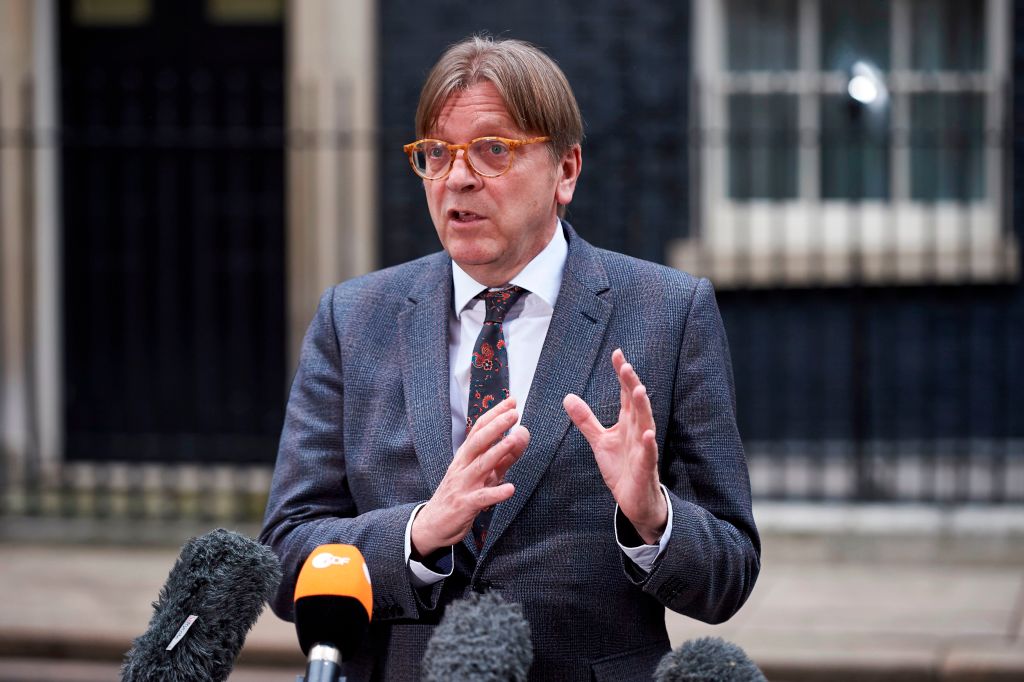Now that Theresa May’s deal has been decisively defeated again, the message from Brussels has been clear: the Brexit impasse is your problem, not ours. But for all the bluster, don’t believe it: the Brexit deadlock is bad news for the EU.
Perhaps understandably, there is anger and frustration on the continent over Westminster’s rejection of the withdrawal agreement. As a result, the EU is attempting to suggest that an extension to the transition period might not be on offer. This was the implied message in Donald Tusk’s reaction to the vote on Tuesday night. The president of the European Council said there must be a ‘credible justification for a possible extension’. ‘The smooth functioning of the EU institutions will need to be ensured,’ he said. But Tusk also knows that the latter would hardly be well served by a no-deal Brexit. He also knows that if Britain does leave without a deal on 29 March, the EU won’t escape the blame for the fallout. Particularly if Britain asks for an extension that isn’t granted.
So while the EU can technically say yes or no to an extension, it is almost certainly a foregone conclusion that they will offer one if asked. Tusk has tweeted this morning to say ‘I will appeal to the EU27 to be open to a long extension if the UK finds it necessary to rethink its Brexit strategy’. Granting this extension will ensure that the EU won’t be blamed for a messy Brexit at the end of March, yet this offer would still cause problems for the EU. There is a fear growing currency in the EU that an extension of Article 50 will simply lead us back to where we are now. It’s not hard to see why. The thinking goes that Theresa May will try again to get her deal passed. She’ll fail. And when this happens, May will ask for the impossible – not get it – and no deal will again be the default option.
The EU is obviously keen to avoid this, so it will attempt to set terms when it grants an extension. Yet for all the posturing on this, in reality, the EU has little power to do so; it cannot unilaterally impose how the extension should look. It will fall to the European capitals, and not to Brussels, to put down some ‘red lines’ but they cannot dictate the actual content of how the UK will deal with Brexit during an extension, even if Tusk’s tweet today suggests otherwise. All they can do is give Michel Barnier, the chief Brexit negotiator, these red lines as a mandate on the extension negotiations. So like it or not, they cannot demand a ‘people’s vote’ or ‘soft Brexit’. All they can do is ask that Britain thinks of an alternative to the rejected May Deal. Even if a new mandate is granted to the Commission then, the ball will still very much be in Britain’s court as the UK is essentially the only party that can determine the content of the extension.
In the mean time, it is clear that Brexit is proving to be a sideshow and unwelcome distraction for the EU. So behind the bluster of the EU27 there is some serious Brexit desperation on the continent. There is not only fear for a no-deal Brexit, there is also fear for what an extension will do to eurofederalist dreams. During yesterday’s pointless debate in the European parliament, this fear was expressed concisely by Guy Verhofstadt:
‘I don’t want a long extension. I say that very openly. An extension, where we go beyond the European elections, and the European elections will be hijacked by the Brexiters, and by the whole Brexit issues. We will talk only about that, and not about the real problems, and the real reforms we need in the European Union.’
Some from the EU side have been attempting to use the upcoming European elections as a threat. The message to Brexiteers is that if Britain stays put beyond the end of March, then it will almost certainly have to take part in these elections in May. It’s true that this would be a nuisance for British voters, who were already largely apathetic about who represents them in the European parliament even before the Brexit vote. But in reality it would be a bigger nuisance for the EU. Loud-mouthed British eurosceptic MEPs would continue to spoil the party for those who want to concentrate more power in Brussels. And if an extension is granted, Brexit will continue to take up valuable time for the EU’s legion of bureaucrats.
So if Brits feel fed up with the never-ending Brexit sideshow in Westminster, spare a thought for the EU; those in Brussels feel the same. Trapped between wanting rid of the Brits but also keen to avoid being blamed for no deal, the EU is certain to grant Britain an extension. But in doing so it will postpone the dreams of the eurofederalists.






Comments